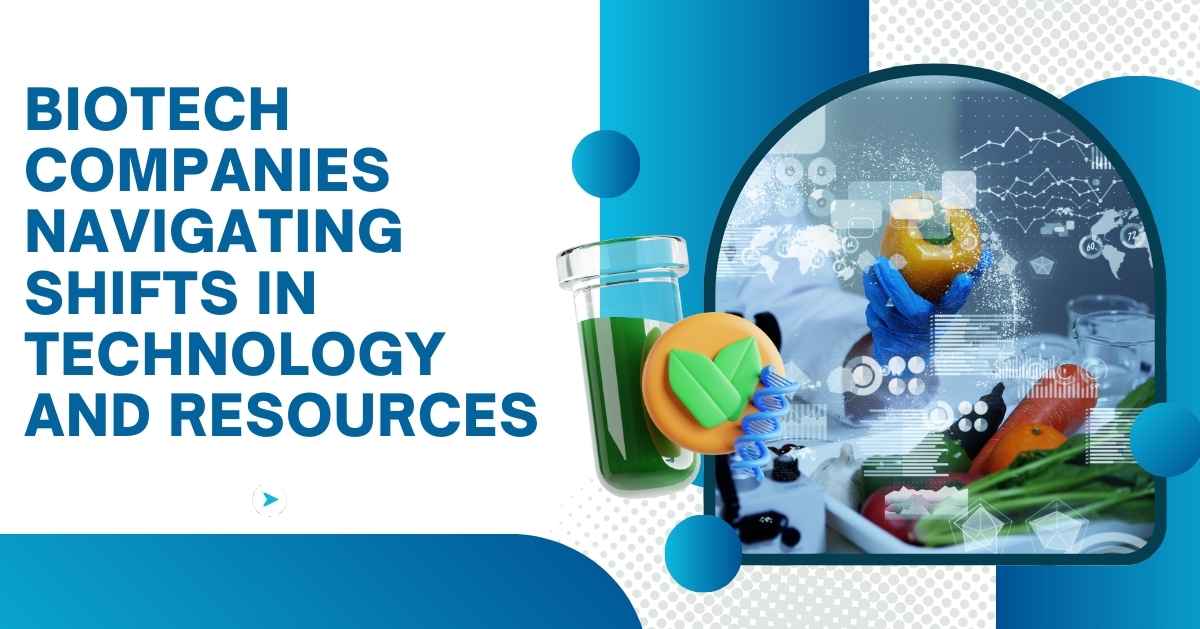How Are Biotech Companies Navigating Shifts in Technology and Resources? Let’s Take a Closer Look

Biotechnology is advancing faster than ever, but with that speed comes new challenges. Shifting regulations, supply chain issues, and the demand for better, faster solutions mean biotech companies must be more adaptable than ever. Staying ahead is about knowing how to implement new technology, secure essential resources, and maintain efficiency without losing momentum. The companies that are succeeding are the ones that have figured out how to work smarter, not harder. Let’s discover how they’re making it happen.
Agility and Innovation Keep Biotech Companies Competitive
The biotech landscape is changing too fast for companies to rely on outdated strategies. Whether it’s breakthrough treatments, gene editing advancements, or AI-driven drug discovery, companies that prioritize agility and innovation are the ones staying ahead of the curve. The ability to pivot quickly, embrace new tools, and rethink traditional processes is no longer optional—it’s a necessity.
Adaptability has become a survival skill in biotech. Companies that integrate emerging technologies into their workflows don’t just gain a competitive edge—they also position themselves to respond to market demands in real time. Whether it’s adjusting manufacturing processes to accommodate new materials or rapidly shifting research priorities to focus on pressing health concerns, agility and innovation separate leaders from those struggling to keep up. By fostering a culture that values flexibility and forward-thinking strategies, biotech firms are ensuring they don’t get left behind.
Advanced DNA Technology is Revolutionizing Biotech
Few areas in biotech are advancing as rapidly as DNA synthesis, and companies that leverage cutting-edge advancements in this field are setting themselves up for long-term success. One of the biggest breakthroughs in recent years is enzymatic DNA synthesis technology, which has changed the way researchers approach genetic engineering, diagnostics, and synthetic biology.
Traditional DNA synthesis methods have limitations, particularly when it comes to efficiency and scalability. Enzymatic DNA synthesis technology offers a more precise, cost-effective, and environmentally friendly alternative, making it easier to produce high-quality genetic material at a scale never before possible. For biotech companies, this means faster research timelines, improved accuracy, and the ability to develop new therapies, vaccines, and diagnostics with unprecedented speed.
Beyond medical applications, this technology is also reshaping agriculture, industrial bioprocessing, and environmental science. Companies that integrate enzymatic DNA synthesis into their workflows aren’t just keeping up with advancements—they’re leading the charge in developing next-generation solutions.
Companies are Overcoming Supply Chain Disruptions
The biotech industry isn’t immune to global supply chain disruptions, and companies that aren’t prepared to adapt are finding themselves at a disadvantage. Whether it’s a shortage of essential lab materials, delays in equipment manufacturing, or logistical hurdles, navigating supply chain issues has become one of the biggest challenges in the field.
The companies that are thriving despite these challenges are those that have built more resilient supply chains. This means diversifying suppliers, investing in local production facilities, and leveraging predictive analytics to anticipate shortages before they happen. Instead of relying on a single source for critical materials, biotech firms are creating contingency plans that allow them to continue operations even when disruptions occur.
Technology is also playing a role in supply chain management. AI-driven forecasting tools and blockchain-based tracking systems are helping companies streamline procurement, reduce waste, and ensure that every component of their operation is running efficiently. In an industry where timing is everything, firms that have mastered supply chain flexibility are finding themselves ahead of the competition.
Sustainability and Biotech are Becoming More Interconnected
As biotech companies expand their capabilities, sustainability is becoming a major focus. Whether it’s reducing energy consumption in research labs, minimizing waste in production processes, or creating biodegradable alternatives to traditional materials, the industry is recognizing that growth and environmental responsibility can go hand in hand.
One of the biggest changes happening in biotech is the push for more sustainable lab practices. Companies are investing in energy-efficient equipment, rethinking how they source materials, and finding ways to reduce the environmental impact of their work. Green chemistry and bio-based manufacturing are gaining traction as firms look for ways to replace petroleum-based processes with renewable alternatives.
Sustainability isn’t just about corporate responsibility—it’s also about meeting new regulatory requirements and consumer expectations. As industries shift toward greener solutions, biotech companies that incorporate sustainability into their operations are gaining an edge. Not only do these efforts improve public perception, but they also lead to long-term cost savings and better resource efficiency.






